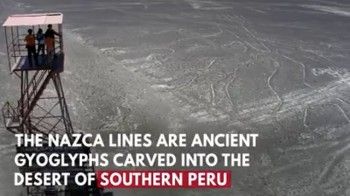Founded after World War II, the United Nations with its 193 member countries is the largest, most internationally represented and most powerful intergovernmental organization in the world.
In Peru, the United Nations system consists of the UN agencies, funds, and programs established in the country.
All these organizations have a presence in Peru based on the country’s development priorities. They provide support according to their mandate and specialty, through technical cooperation projects, research applied to development, and technical support for the development of national capacities, among other mechanisms.
In addition to the activities of each organization, the United Nations system in Peru works in a collaborative and coordinated manner on essential issues that have been identified by the international community and the country itself: Sustainable Development Goals (SDGs), human rights, gender equality, HIV/AIDS, among others.
UN Milestones in Peru
- Access to livelihoods and sustainable development. We support the government to model ecological policies and evaluate the impact of sustainable sectorial public policies. A strategy was adopted to formalize labour in small companies. National Disaster Risk Management (DRM) policies were updated, and the instruments to institutionalize management at the three levels of government, and a Social Protection Strategy for DRM is being developed.
Access to universal basic and quality services. We support the strengthening of water quality assessment, and water solutions have been implemented in 19 rural communities. Implementing the National Plan for chronic child malnutrition has been strengthened, and technical assistance was offered for the Law for the Promotion of Healthy Diets. The authorities' capacities have been fostered by the implementation of policies to promote comprehensive care for adolescents and young people.
Efficient public management and trust in institutions. We provided technical support or the inclusion of the SDGs in planning frameworks and financial assistance to include children's and adolescents' perspectives in the National Strategic Plan. We supported the publication of the National Statistics Report that details the SDGs indicators. The Team also supported congress to align legislation with the SDGs. Sessions on the SDGs were organized with the public and private sectors to design innovative proposals.
Civil freedoms, rights, and participation of citizens. We support the approval of the National Human Rights Plan. It helped strengthen mechanisms to prevent gender violence, services for female survivors of violence, and the plan to reduce femicides. The joint programme for people with disabilities was implemented with the Ministry of Labour. The Principles of Zero Discrimination to LGBTI Persons were presented, and a campaign on sexual and reproductive rights, gender and diversity was promoted.
Environment and climate change. We offer technical assistance to develop public policies and projects focused on sustainable development, resource conservation, and low-carbon green growth. Both with the State and with civil society organizations, adequate environmental management is promoted, as well as the implementation of mitigation and adaptation actions against climate change.
Protection of refugees and migrants. We work with the government to expand assistance, protection, and integration of refugees and migrants to guarantee their access to fundamental rights. The support includes technical assistance for institutional strengthening and the development of public policies, humanitarian assistance, the establishment of protection mechanisms, promotion of socioeconomic integration, and community strengthening.



























